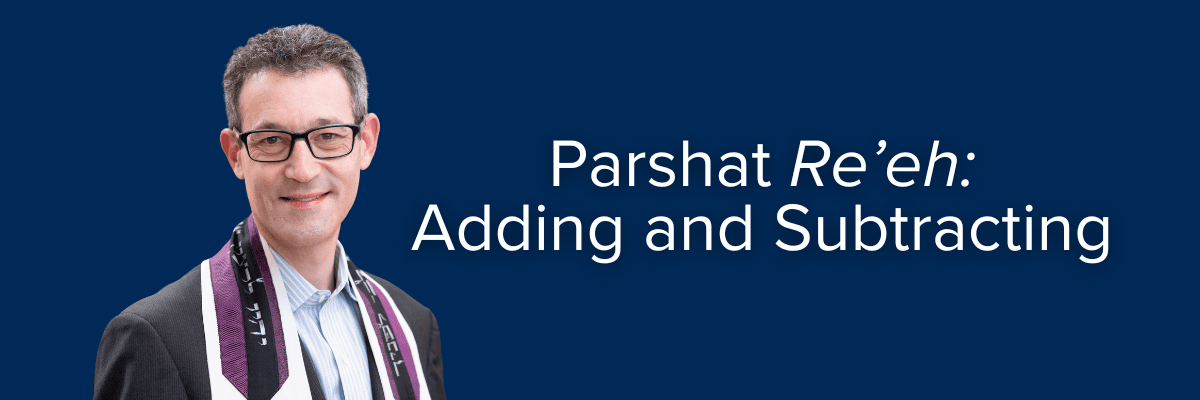In Parshat Re’eh, Moses makes his last speech to the people as they prepare to enter the Land of Israel. His speech stretches from some of the most essential aspects of Judaism, such as helping the needy, to the most detailed, such as kashrut (the dietary restrictions of keeping kosher). He also makes a fascinating admonishment: “Do not add to or subtract from these commandments.” It is a warning that begs many questions as we look at Judaism today.
In context, these words from Moses were probably intended to mean that we should not be led astray by false prophets. However, they have been quoted by later rabbis to oppose Reform Judaism since its early times, by taking a position that existing Jewish tradition cannot be changed.
The idea of Jewish tradition as constant and unchanging is appealing and even important. The depth of history in our rituals and teachings gives them tremendous power. At the same time, the idea Judaism does not change is false, even for the most traditional observers of the tradition. My favorite example comes right from this same portion. The commandment not to “boil a kid (baby goat) in its mother’s milk” is the scriptural source for the laws of kashrut that prohibit the mixing of milk and meat. In other words, the rabbis who interpreted this verse used it to create a totally new tradition that did not follow from any plain-sense understanding of the verse itself. There’s an old joke that illustrates this. It’s a conversation between God and Moses:
God: Moses, command the people: Don’t boil a kid in its mother’s milk.
Moses: I think I know what that means, God. We are not to eat goat and goat’s milk together.
God: Hold on, Moses. I just said don’t boil a kid in its mother’s milk.
Moses: OK, so we should keep all dairy food separate from all of our meat, right?
God: No, Moses, listen carefully. Don’t boil a kid in its mother’s milk.
Moses: You got it God. We’ll have separate kitchens, one for milk and one for meat, and, of course, this means chicken and turkey too.
God: You know what, Moses, you do whatever you want.
The joke shows that Judaism, like any tradition, has a life of its own. It grows and develops, and we in our own time are free to participate in that growth. May the changes we bring to Jewish tradition, as individuals and as a community, serve not to subtract from its beauty and its relevance, but to add to it.
Wishing you a Shabbat Shalom
Rabbi Jeff Saxe


